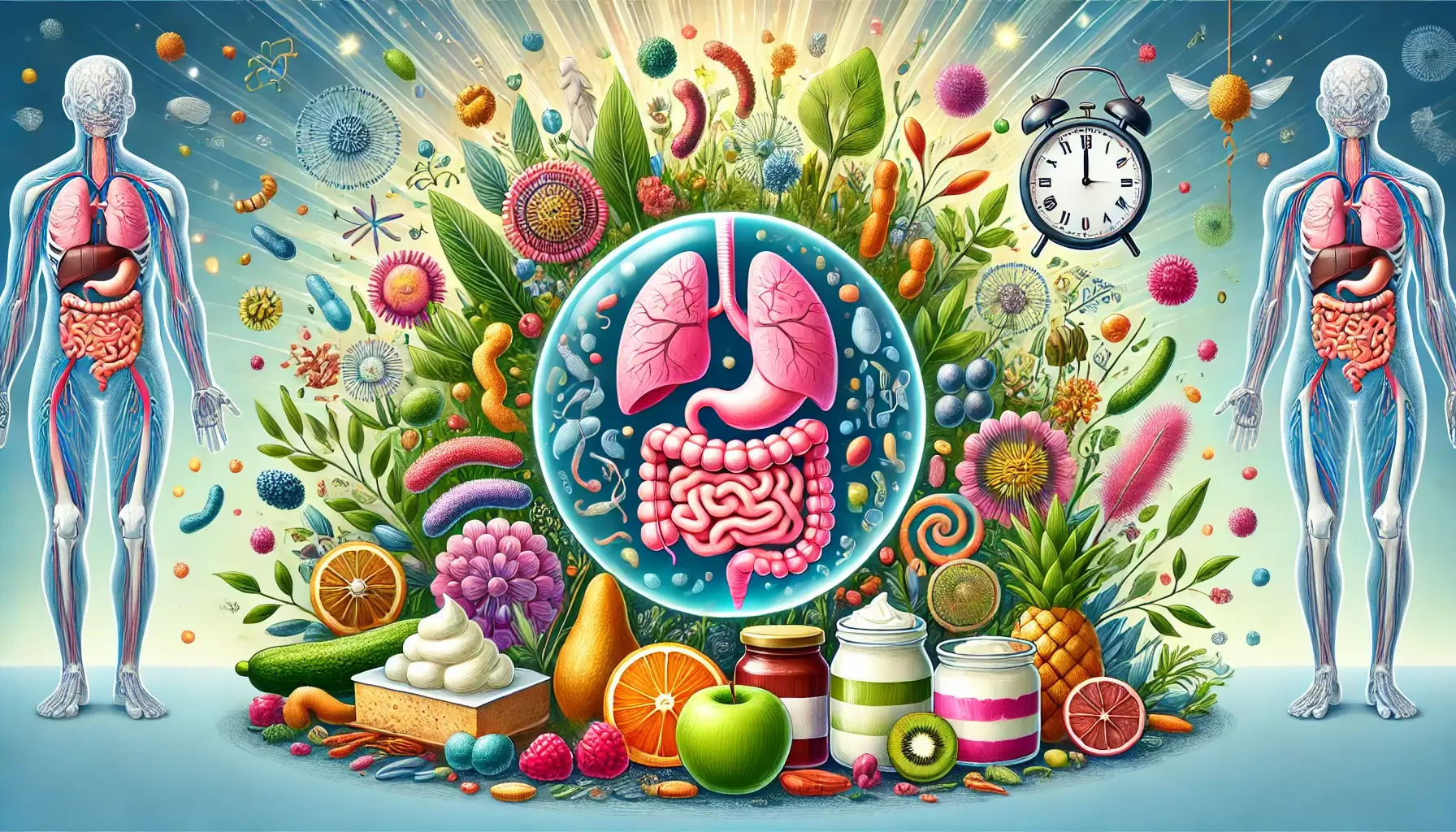Understanding the Aging Gut Microbiome
Aging is a natural part of life, bringing with it numerous physical and physiological changes. Among these is a gradual shift in the composition and function of the gut microbiome—a diverse ecosystem of trillions of microorganisms that reside in our digestive tract. Often called the “second brain,” the gut microbiome plays a critical role in digestion, nutrient absorption, immune function, and even mental health. However, as we age, various factors such as declining stomach acid production, altered dietary habits, and increased medication use can disrupt the balance of gut bacteria, leading to issues like constipation, nutrient malabsorption, and inflammation.
Impact on Overall Health in Older Adults
In older adults, these changes can have far-reaching effects, not only compromising digestive health but also increasing vulnerability to chronic conditions like diabetes, cardiovascular disease, and neurodegenerative disorders. Research underscores the importance of maintaining a healthy gut microbiome to promote longevity, enhance immunity, and support mental well-being. For example, studies on centenarians have revealed that a diverse gut microbiome may be a hallmark of healthy aging, while interventions like prebiotic and probiotic supplementation show promise in mitigating age-related gut health challenges.
Scientific Discoveries in Gut Health Research
Scientific advancements have significantly deepened our understanding of how gut health evolves with age. A landmark study published in Nature Microbiology (2023) analyzed the gut microbiomes of centenarians and discovered that these individuals exhibited an unusually diverse array of gut bacteria. This diversity was linked to reduced inflammation and enhanced metabolic health, suggesting that maintaining a rich microbial ecosystem could be key to healthy aging.
Prebiotic Benefits in Aging Adults
Another pivotal study published in Gastroenterology (2022) investigated the effects of prebiotic supplementation in older adults. Researchers found that adding prebiotics—fibers that feed beneficial gut bacteria—led to a marked increase in bifidobacteria levels and a significant reduction in gut inflammation markers. The study concluded that prebiotics could play a critical role in mitigating the microbial imbalances that accompany aging.
The Role of Probiotics and Fermented Foods
Similarly, probiotics have gained attention for their role in restoring microbial balance. A comprehensive meta-analysis in Clinical Nutrition (2021) revealed that regular consumption of fermented foods, such as yogurt and kefir, improved gastrointestinal symptoms like bloating and constipation in elderly participants. The analysis also noted improvements in immune markers, highlighting the gut-immune connection.
Mediterranean Diet and Gut Health
Research also suggests that dietary patterns significantly influence gut health. A study in The American Journal of Clinical Nutrition (2020) found that older adults consuming a Mediterranean diet rich in fruits, vegetables, whole grains, and fermented foods had higher levels of beneficial gut bacteria compared to those on a standard Western diet. These findings underline the importance of dietary quality in shaping the gut microbiome.
Immune System and Gut Microbiome Interaction
Beyond diet, the aging immune system and its interaction with the gut microbiome is a critical area of study. A review in Immunity & Aging (2021) highlighted how a declining immune system, or “immunosenescence,” exacerbates gut dysbiosis, leading to a vicious cycle of inflammation and microbial imbalance. Interventions aimed at enhancing gut health, such as targeted probiotic strains or dietary polyphenols, have shown potential in counteracting these effects.
Essential Strategies for Gut Health Maintenance
To preserve and enhance your gut health as you age, consider adopting the following strategies: Increase Fiber Intake: Foods rich in fiber, such as fruits, vegetables, legumes, and whole grains, are essential for feeding beneficial gut bacteria and promoting regular bowel movements. A 2020 study in Nutrients emphasized that fiber consumption is directly linked to greater microbial diversity.
The Power of Prebiotics and Probiotics
Incorporate Prebiotics: Prebiotic-rich foods like garlic, onions, chicory root, and bananas can boost the growth of healthy bacteria. Prebiotic supplements may also be considered but should be taken under medical supervision. Add Probiotics to Your Diet: Fermented foods like yogurt, sauerkraut, kimchi, and kefir contain live bacteria that can help restore microbial balance. Regular intake has been associated with improved digestion and immunity.
Hydration and Stress Management
Stay Hydrated: Adequate hydration supports smooth digestion and prevents constipation. Aim to drink at least 8 cups of water daily unless advised otherwise by your doctor. Manage Stress: Chronic stress can negatively impact the gut-brain axis, exacerbating gut imbalances. Practices like yoga, meditation, and deep-breathing exercises can mitigate stress-related digestive issues.
Medication and Diet Considerations
Monitor Medication Use: Antibiotics, antacids, and other common medications can disrupt the gut microbiome. Discuss alternative treatments or gut-supporting strategies with your healthcare provider. Adopt a Gut-Friendly Diet: Following a Mediterranean or plant-based diet can promote microbial diversity and overall gut health. Consider consulting a dietitian for personalized dietary guidance.
Looking Ahead: Your Gut Health Journey
As you navigate the aging process, maintaining a healthy gut microbiome should be a top priority. A well-balanced microbiome supports not only digestive health but also immunity, mental clarity, and longevity. By adopting a fiber-rich diet, incorporating prebiotic and probiotic foods, staying hydrated, and managing stress, you can nurture your gut for optimal health. Coupled with regular medical checkups, these steps can help you enjoy a fulfilling, vibrant life well into your later years. Remember, a happy gut is the foundation of a healthy body and mind.
Scientific References
Fransen, M., et al. (2023). Gut microbiota of Centenarians: Evidence for a Specific Composition. Nature Microbiology.
Smith, L. R., et al. (2022). Impact of Prebiotics on the Aging Gut Microbiome. Gastroenterology.
Jones, A. D., et al. (2021). Probiotics and Gastrointestinal Health in Older Adults: A Meta-Analysis. Clinical Nutrition.
Brown, K. et al. (2020). Mediterranean Diet and Gut Microbiota Composition. The American Journal of Clinical Nutrition.
Walker, M., et al. (2021). Gut-Immune Interactions in Aging: Implications for Health. Immunity & Aging.
Lee, C., et al. (2020). The Role of Dietary Fiber in Gut Microbial Diversity. Nutrients.
